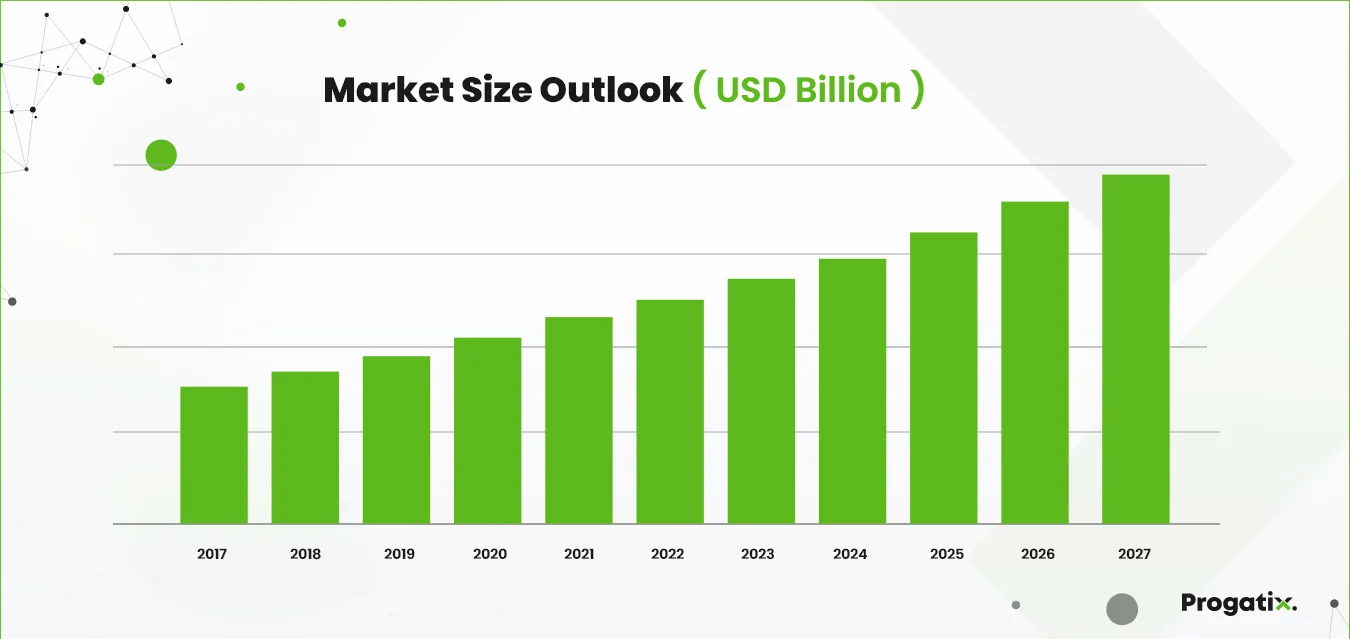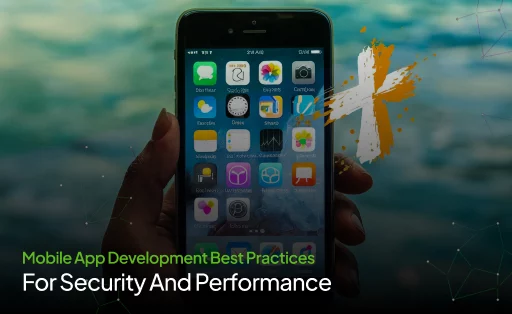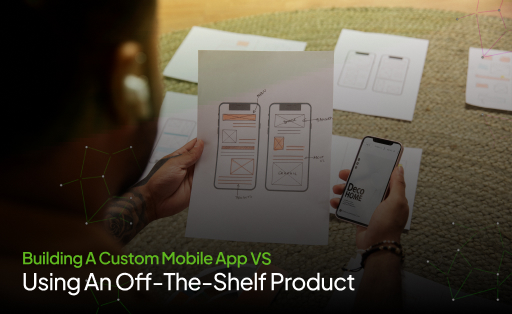Fintech Software Development – A Comprehensive Guide Software Development

Software development is important to modify the ways we handle, exchange, and invest our money in the fast-evolving landscape of financial technology (FinTech). Traditional financial services have been obstructed by numerous advanced options emerging as technology progresses. The fintech software development field leads to a varied array of apps and solutions outlined to improve numerous aspects of the financial industry.
Fintech software is basically a blend of evolving technologies that let financial institutions provide their services more rapidly and effectively to customers in an increasingly motile and web-linked world.
As the fintech industry obtains momentum and companies turn to gradually refined technologies and algorithms to strengthen their products, discovering the perfect talent for a fintech project becomes one of the most crucial challenges for businesses seeking to step up their software development or streamline legacy systems.
According to Technavio, the fintech software market was anticipated to grow at a CAGR of 8.82% between 2023 and 2027, with the size forecasted to escalate by USD 24,277.91 million. The market growth relies on numerous factors, i.e., the need to enhance business efficiency, the impact of financial services digitalization, and the integration of big data and AI in Fintech.
Source: technavio
Keep reading this blog to gain a comprehensive overview of the proficient fintech market trends, besides edging vital steps for fintech development outsourcing and acknowledging key stages for hiring software engineers with familiarity with financial technology.
What is Fintech Software?
Fintech software lies at the core of financial innovation and refers to a digital tool promoting seismic shifts in how financial transactions are observed and implemented globally. The term ‘Fintech’ signifies any technological progression employed in the financial services industry throughout the sectors ranging from investment firms to insurance agencies and including everything.
Fintech software incorporates varied applications like mobile banking platforms, crowd-funded investment tools, cryptocurrency trading applications, or robo-advisors – creating more user-friendly, effective, and rapid processes for customers. These multi-layered applications share one common objective, and that is the automation and optimization of financial management decisions while offering seamless experiences for end users.
So, whether it’s moving money across borders without astronomical fees via payment apps or by promoting healthy savings habits using personal finance tools, we behold our appreciation to fintech and financial software developers. At the core, these radical technologies have standardized access to financial services, thus indicating an era of exceptional growth and possibilities within the finance industry.
Types of Fintech Software Development
The Fintech industry has wide-ranging options to pick from if you are considering tried-and-true Fintech concepts for startups.
Here are the primary types of financial software in use:
Digital Banking Software
Digital banking app users can manage their bank accounts and avail themselves of financial services without physically visiting a bank. Everything a person can do in a physical bank gets recorded in financial software systems, such as account opening, loan securing, funds transferring, payments assembling, etc.
Insurance Techonolgy Software
With the utilization of InsurTech software, insurance companies can implement more detailed methods of risk assessment, besides making better deals and providing users with quick ways to apply for insurance and manage claims. There are numerous ways to use insurance management apps for cars, life, home, and pet insurance.
Personal Finance Management Software
One of Fintech’s most important benefits includes helping people manage their money by keeping track of their revenue and expenditures. In PFM applications, communication with users is always calm. Configurations for managing finance and tracking expenses are quite easy to accomplish by integrating the data at a unified location.
Payment Processing Software
Payment processing software manages every transaction in place of the financial software development company. To enable web and mobile payments, it serves as a midway connecting payment service providers with the cardholder. Even small businesses can allow cards and other forms of online payments.
Investment Software
Investment software is one of the most significant platforms as it objects to standardizing investment by making it accessible to all people, not just the wealthy. An investment app decreases commissions, eliminates middlemen, and streamlines trading, bids, and purchases.
Tax Management Software
Tax management software proves to be beneficial for managing and filing taxes due to the complexity of tax systems. This sort of finance software for business makes the process of creation, submission, and paper management effortless. Since almost everything is automatic, having previous knowledge or hiring an accountant is not required.
Must-Have Features of Financial Software Systems
For creating a successful Fintech app, it is acceptable to integrate as many features as you want with innovative ideas. Associate what you want to propose with what your competitors do, then turn up with something that is more effective, smart, and reasonable.
Here are some quality features that your app must come with:
Intuitive UI
Finance is all about intricate concepts like foreign currency, stock trading, point-of-sale systems, etc., and due to this, you must make things easier for your consumers besides delivering user-friendly and easy-to-use fintech solutions and recalling customers in the future by offering simple navigation, fetching UIs, and other engaging features.
Data Visualization
Over the years, users have been provided with limited access to data related to income, expenses, and transactions. However, this should alter with custom software development for Fintech, providing your customers with access to accurate charts and visualizations of any type of financial information required for a given time period.
Cross-Platform Support
Your Fintech software must work smoothly and simply among all operating systems and devices. Considering the mounting number of digital devices and platforms, you need to hire a custom financial software development agency and integrate cross-platform competencies.
Gamification
The notion of gamification refers to a valuable feature for making Fintech product usage more pleasant besides involving tailored discounts, cashback, and rewards. This idea can be applied to both customer acquisition and customer retention.
Alerts and Notifications
In order to stay in touch with customers and promote specific services based on their demands, notifications and alerts are crucial. Users should be able to choose or set up when and how often they want to receive notifications so that they do not miss critical alerts.
Digital Payments
Every Fintech app should offer rapid access to several digital payment methods, such as mobile wallets, UPI accounts, bank accounts, and others, to enable uninterrupted transactions. This enables customers to manage their accounts, pay their bills, and schedule recurring payments with ease.
Benefits of cutting-edge Fintech solutions
Automation of financial tasks
Financial task automation is one of Fintech’s most important benefits. Automation makes it easier and more rapid for customers to manage their finances, besides offering them the option to avail automatic payments, transfer money between accounts, and receive notifications for definite events. Also, it maximizes accuracy and minimizes the amount of manual labor needed to process financial transactions. Financial task automation aids businesses and customers by saving time, reducing costs, and improving productivity.
Improved security
Fintech utilizes artificial intelligence, advanced encryption, and biometrics to secure user data and financial details. Such technologies help with fraud identification and offer a secure platform for transactions. Moreover, fintech companies consistently provide inflexible compliance requirements while encouraging data security and confidentiality as such measures help protect users from financial corruption, identity snatching, and other possible cyber threats and risks.
Increased operational efficiency
Fintech aids financial institutions by automating prevailing processes, streamlining operations, enhancing customer service, eradicating time-consuming and costly manual tasks, and reducing risks through accurate tracking and monitoring while improving accuracy and speed. Moreover, Fintech offers valuable insights related to customer behavior and financial trends that help banks and other financial institutions in making well-versed decisions.
Lower costs
With fintech solutions, financial institutions can lessen their operational costs and progress those savings onto customers. Fintech solutions are usually cheaper than traditional financial services due to their digital strategy and process automation, which excludes manual labor and lessens overhead costs. Additionally, Fintech offers more economical rates and fees while allowing customers to save money on products and services. Lastly, it offers more visibility and adaptability that makes informed decisions and gets products customized to their requirements with ease.
Increased accessibility
Through Fintech, financial services are becoming more approachable to people globally, irrespective of their location or financial situation. It is widely known that FinTech eliminates the traditional and outdated blockades to entry, including high costs and challenging processes. Furthermore, Fintech allows everyone access to the internet to reach wide-ranging services, from banking to investments, from any device, with little or no trouble. This escalated availability has allowed people to gain financial assistance, which they did not have access to previously, and has also aided them in handling their finances more effectively.
Stages of a finance software development project
Moving completely with fintech software development is no trifling activity, but if done correctly, it’s a priceless future investment for your business. Here are the outlined key steps for companies outsourcing their fintech project development and providing direction on how to direct the process successfully.
Ideation & validation
The initial stage encompasses ideation and evaluation of the concept’s viability. It’s similar to a free-associating session where the team deliberates over problems or issues their software product might pose. This stage is where the company’s team members are exhilarated to share any and all ideas liberally, irrespective of how fundamental or eccentric they might appear.
Market research
Before digging into the fintech project details, it’s essential for companies to lead market research, including the comprehension of the end-users’ demands, requirements, and preferences. Organizations must also classify growth possibilities and decipher how to distinguish their software product from those of their opponents, guaranteeing an exclusive value proposition in the market.
Planning/requirement gathering
Throughout this stage, all shareholders review the project requirements, and timelines are composed for creating a finance software development strategy. The planning stage is also when it’s determined how many designers and developers must be hired, be it in-house or using a remote dedicated team. Organizations might ponder getting connected with a software outsourcing company to reduce costs.
Prototyping and design
This stage includes design creation, emphasizing having the best possible UX/UI for the fintech solution’s end users. This also refers to the stage where prototypes are built to test if everything will work effortlessly and to decide whether the interface will serve the purpose of forming a positive user experience.
Software development & testing
At this stage, developers write code and direct, robust testing to ensure the product achieves what is proposed. Remember, the general goal always rests in solving a problem coming up from businesses or customers or improving a piece of technology they already appreciate. One of the best ways to improve the fintech software development project’s progress is to pick a trustworthy technology partner.
Deployment and maintenance
This phase focuses on the inauguration of fintech products into the market and upholding them to ensure unceasing and streamlined operation. Once the technology is implemented, enduring maintenance is necessary to keep it working smoothly and highlight any possible issues that might arise.
Post-launch support
In this stage, the devoted team delivers constant support, advancements, and maintenance services for the finished product during its entire lifecycle. A financial software developer’s team is considered good not only if they deliver the solution but also ensure its longstanding success by making it work smoothly and implementing any required improvements.
Fintech Market Trends
As we dig into the development of trends within the fintech software world and financial app development, it becomes vibrant how quickly this industry develops. Data-driven decision-making techniques have come to outline this mobile app development era, driving most of these modifications.
One major trend within this cloud computing sector is the move towards AI and machine learning technologies. An assembly of companies binds these competencies in an attempt to improve their predictive analytics competencies and seem sensible of the enormous amounts of data that they gather daily.
Blockchain technology has occupied center stage as well in the past. Its enormous potential for enabling secure transactions has been accepted by several businesses, leading to its extensive implementation across various domains.
Another noteworthy trend is the increase in tailored banking software and services. This can be accredited to consumers’ demands for products customized precisely to their requirements, and demand for fintech software development accommodates remarkably well, too.
The flow in mobile payments indicates another essential market trend. The accessibility offered by fintech-empowered payment systems and solutions appeals to more users and encourages them to abandon traditional transaction approaches.
Significantly, we’re also observing a hastening towards Open Banking ingenuities worldwide. Through APIs that let third-party financial software developers access bank data, an excess of game-shifting financial services applications have occurred.
SPACs (Special Purpose Acquisition Companies) exemplify another key aspect of reforming trends in finance-industry-based endeavors.
Certainly, describing all prevailing fintech market trends would require far more column inches than this brief overlook pays for. However, observing these key alterations will deliver valuable insights into considering the future landscape better and staying forward in this dynamic setting identified as fintech software development.
Cost of a Fintech Software Development
The average cost of FinTech app development varies, ranging from $50,000 to $300,000. However, the precise figure hinges on a broad range of factors.
FinTech, by description, is an extensive term used to define any technology that helps with financial transactions.
The first question you’ll have if you object to investing here is: “What’s the cost of FinTech app development?” Unluckily, there is no conclusive answer to this question.
The factors that might impact the cost of your finance application comprise its features: The more composite your features are, the higher the cost.
The finance application’s operating system, i.e., whether it works on iOS or Android, will have an impact on its cost, too.
Whether your application is native or hybrid can also impact its cost.
The native applications’ development cost is inclined to be greater. Security is another investment, as you must confirm you meet the essential security requirements. Third-party APIs also cost a substantial amount of money, and your cost will differ according to how many integrations you require.
Conclusion
Fintech software development is a dynamic force that re-analyze the financial industry by offering innovative solutions to long-existing challenges, as well as meeting modern consumers’ varying expectations. It’s a field apt with possibilities but filled with challenges, and thus, to direct it, you need clarity, imagination, and a surge of courage.
Looking for fintech software development solutions? Contact Progatix and get benefits from full-ranging software development services to help you stay ahead of the competition.



 Let's Discuss Your Tech Solutions
Let's Discuss Your Tech Solutions 






